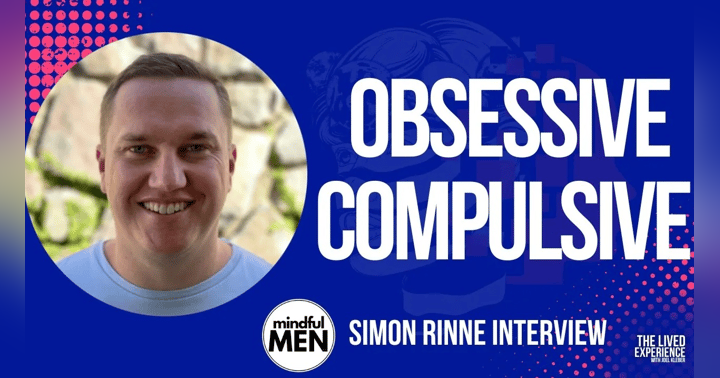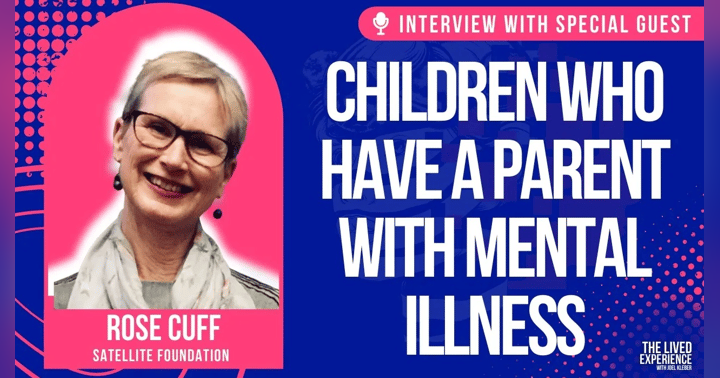Interview with Rose Cuff, Founder of Satellite Foundation and Champion for Young Carers

Interview with Rose Cuff, Founder of Satellite Foundation and Champion for Young Carers
Rose Cuff is an Occupational Therapist who has worked in child, adolescent, and adult mental health services since 1986.
Since 1995, she has focused specifically on the area of supporting families where a parent has a mental illness through direct clinical practice, creating and implementing peer support and group programs, developing resources, and conducting training and research.
Since 2007, she has been working as the Statewide FaPMI (Families where a Parent has a Mental Illness) coordinator in Victoria, based at the Bouverie Centre in Melbourne.
In 2008, she and a small number of dedicated colleagues established the Satellite Foundation, which aims to provide opportunities for children and families to receive the information and support they want, and a means to be connected to others who may have similar experiences.
JOEL: How did it feel to be recognized as an organization in the mental health royal commission?
ROSE: When I saw that Satellites had been named and the Fat Me program as well.
The families who are parents have a mental illness—which was my life work as alongside satellite. And I guess it comes at a time when the voices are loud enough—not just my voice but many voices in this space.
Having people who talk about what it's like, the good, the bad, and all the rest in between of growing up in a family where one or both parents have got significant mental health challenges.
I think the Royal Commission came at a time when it was shifting, there was a deepening understanding of what that was like for children and young people and a deeper understanding of what's helpful—what might be helpful and what was missing.
The Royal Commission, in their work, have had very powerful stories they heard a bit of the truth, and it touched the people gathering information, so a couple of people in our satellite community also talked to the Royal Commission, to one of our ambassadors, Justin Hazelwood and one of our young graduates.
So, it's about having big enough voices, I think it just catered the timing was just great. It's transformative, this kind of funding and this kind of focus.
What was in place before the Satellite foundation?
There were programs and supports and recognition, it was patchy. A lot of young people's and family experiences were negative.
One of the things that was missing was them being identified. And that's where the family program of other initiatives have tried to change.
So, in an adult mental health service, where it's the parent or the carer who's receiving the care or treatment, there wasn't a recognition that you have to ask about whether this person's got, children.
It should be part of routine practice. Because only then can you find out what's happening within the family and how much children might be impacted or not and know what to do, and people weren't asking children and young people what their experiences were.
There was a lack of inquiry and a routine level and that came from a lot of people.
People working in services fear of saying the wrong thing, or certainly my experience, way back when I first got interested in this work, in 1994—in an adult mental health clinic.
And me, very naively and without thinking about it asking a parent—this is in rural Queensland, “oh, I see, you've got children, tell me about them”. And her experience had been if she talks about her children, she will be judged and potentially lose custody of her children.
So, there was a lot of anxiety about what to say, who to say to, who to involve, from everyone, and leading to some negative experiences.
What will be put in place from the MHRC report?
One of the things I think will change over time will be that the system will be more integrated—easier to navigate. It will be a system a service system driven by people with lived experience—probably that's the biggest change that will happen.
Through this reform agenda lived experience and people with a lived experience or experiences of other mental health challenge themselves or somebody they care about will be at the center of the work.
So, there is going to be new Mental Health Act—new adult and child and youth mental health services, wellbeing centers, family, and carer hubs.
New training for lifting the lived experience workforces. It's happening at a very quickly, the system is being changed to reflect what will be we hope will be a fairer—more equitable, more joined up service system.
I think where we sit the satellite is that we're a non-clinical service, we're a community-based organization.
And we, my intention—very clear intention—is to work very closely with all the other organizations that potentially have contact with children and young people in families where there is mental illness, to make sure that we coordinate, and we collaborate in a deep, and meaningful way, which is in line with the Royal Commission as well.
Recommendations, it was 65 recommendations. So, there's a lot of work to be done.
How do you assist people?
We’re very busy on social media—that's where a lot of young people now go to get information.
Social media is probably the first thing that we're working very hard to make sure that we were noticed, and that young people can find us.
We’re starting to build relationships with a school—the Education Department. It's a very important piece of work because schools in Victoria part of the recommendations from the Royal Commission was more supporting schools.
So, liaising with the people that intersect with student—whether it's well-being staff, teachers, assistant principal, so they know who we are, and other organizations so they don't wring their hands in despair and say, “I don't know where I can get support for this young person”.
We also have an increasing database of service providers across child youth, family, mental health, social and emotional well-being.
Building our database of supports and organization so that they know and building relationships like just as we grow because we are growing, we're recruiting—not too quickly, but having people who can go out and just talk about what we do.
Often a friendly face talking about the kind of programs that we offer, and resources is much more meaningful than an email in their inbox to be honest.
So, it's just getting out there and talking, walking the talking, talking the talk.
What advice can you give for young people who have a parent with mental illness?
You’re not alone. There are many young people out there who are in situations where they also have a family member, a parent carer, sibling, a friend, or someone they care deeply about, that is struggling with their mental health, and that you as that young person are trying to get helpful.
I would say, you’re not alone, and reach out for help. And you can do that by ringing someone, check on social media.
Remember if you're the young person, providing support, your mental health is important.
The analogy “put your own oxygen mask on first”, that's very hard to do when you're providing care.
As we get older and mature, we're able to understand more deeply, that it is important to look after yourself.
Think about who else you can talk with in your immediate circle of friends, family, school or community that can hear you because it might be someone like Satellite that you speak to for the first time, but there might be somebody else, a really compassionate teacher, somebody in your local community that you can talk with—it may one of the reasons I think, while there's some young people don't share their stories is for fear of being disloyal to their family member.
Everyone deserves to be heard. Everyone deserves a place to, for someone to hold space for them, and validate how they feel and validate their concerns.
And sometimes that's enough. Not to have someone provide immediate solutions, but someone's a bit to hear.
And that's where some of those help lines are helpful that online chat that you can just say how you feel.
What are the positive outcomes with Satellite programs?
There are several settlers, probably at least six young people who are I met when they were first between six and 10 years old and who are now in their late 20s—and I'm still in contact with them.
Some of them have come back to be part of satellite. And that's certainly not attributing there, that's all due to their hard work, to their perseverance and to their reaching out.
Seeking the kind of help that they want—when they want it and when they need it.
I think that the service system is like mental illness, it comes and goes, it's sort of the person's health ebbs and flows.
And similarly, the need for support ebbs and flows. And so, we need to be responsive to what is happening in someone's lives across it, and for families too—across the lifespan of families.
And how it's understood in families that we're grappling and like many people with the terminology that's used, the language that's used around—mental illness, mental health, trauma, social and emotional well-being, how mental illnesses is understood in different cultures and different families.
It's not a one size fits all language. So, I think being mindful of that. Even just talking about young carers is not something that fits easily for some young people.
What success story from a satellite that you're proud of?
There was a young person who came. She's been in the Satellite for just over a year now about 14 months and join one of our online programs called Satellite Connect—which is a six-week program.
This was during COVID, and had never really talked about her family's intersection with mental health and what that meant for her, both her own mental health and the impact of her parent’s mental health on her as a person as how she identified growing up as an adult.
And was very nervous about joining—like really had never heard never been to us before. Really nervous about what it meant about disclosing how she felt about that it would be just a whole lot of people talking about how terrible life is. But also, just not wanting to be disloyal to her parents.
She managed to with a lot of gentle support from us and affirming before she even joined the program just validating what you might be feeling and what parent might be feeling and it's just entirely optional.
She did and has remained is now an integral part of the organization has done to programs that come away with us and is training to be a peer leader and takes part in, has done some work.
We often do consultations with young people have been a particular topic. So, it's very much embedded in the work that we do. And with very close friendships with other young people.
I think that's been a really very positive experience for her. And I think I'm hoping well, sort of helping to equip her with some of building on the strengths and tools she has already.
To learn more and donate to this great organisation visit https://www.satellitefoundation.org.au/













